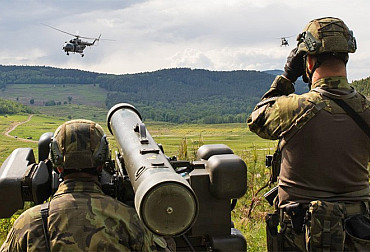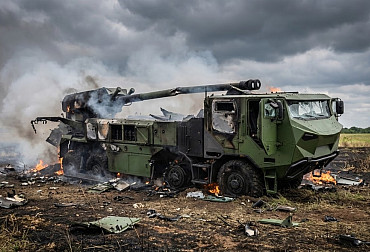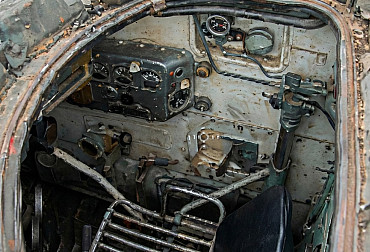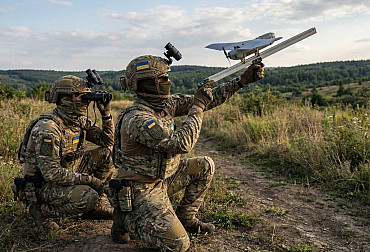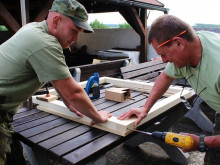Acquisition of the SPYDER anti-aircraft system can be achieved - but the conditions for participation of the Czech industry cannot be neglected
While in the case of the CAESAR self-propelled guns, the Government was informed about the purchase on Monday, the relevant contracts have already been concluded between the manufacturer (the French state-owned company NEXTER) and Czech subcontractors, and the Czech industry's share (40%) is thus contractually assured, intensive negotiations are underway with the Israelis, from whom the Government will purchase the SHORAD anti-aircraft system for the Czech Armed Forces in the form of SPYDER batteries from RAFAEL. The Ministerial College is to discuss the contract during the next week. Negotiations are being finalised - but as the contracts between the manufacturer and the Czech companies have not yet been concluded, there is some nervousness. With the main contract in Israel's pocket, the position of Czech subcontractors may weaken.
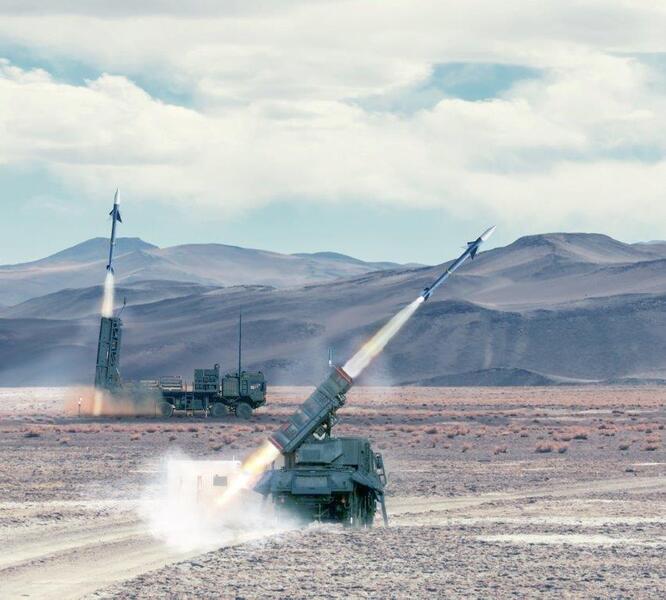 Picture: SPYDER - Short and medium range anti-aircraft missile system (SHORAD) | Ministry of Defence of the Czech Republic
Picture: SPYDER - Short and medium range anti-aircraft missile system (SHORAD) | Ministry of Defence of the Czech Republic
At the 48th meeting of the Defence Committee on Wednesday, 8 September, MPs said they were told that agreement was being reached with suppliers on the contracts for the NATO-calibre gun and the SHORAD anti-aircraft system and that these acquisitions would be signed before the elections. This is fully confirmed in the case of the CAESAR guns, for which subcontracts have already been signed, the contract has been discussed by the College of the Minister of Defence, the Government has been informed and there is virtually nothing standing in the way of the contract being signed by the end of September. In this case, the new weapons will be procured for the Czech Army for 8.5 billion on the basis of a direct approach to the manufacturer, the French state-owned company NEXTER.
According to the MoD statement, a similar situation also prevails in the case of the SHORAD anti-aircraft system from the Israeli company RAFAEL, which are being procured by way of intergovernmental agreement or G2G. According to the director of the MoD press department, Jan Pejšek, the share of the Czech defence industry has been negotiated and will reach at least the required 30% of the contract value. "Within the final offer from the Israeli side, the specific involvement of the Czech industry is described in detail. The contracts between the manufacturer and the Czech partners are a bilateral matter between them," he said in his reply.
These contracts are undoubtedly a bilateral matter between the manufacturer and his subcontractors, but the MoD is of course interested in the form of the Czech defence industry's participation in the contract in detail, and despite the mutual trust that is strengthened by the form of the acquisition, in which the Government of Israel is the Czech Government's partner, it is still a business relationship in which each party seeks the most favourable terms for itself. Thus, while in the case of the self-propelled guns, contracts were signed with Czech subcontractors before the main contract for the purchase of systems was signed, this is not yet the case with the SPYDER system. The industrial partners of this contract will be mainly the state enterprise VTÚ (Military Technical Institute) and the company RETIA from the CSG group (which has successfully modernised the existing KUB anti-aircraft systems).
Andrej Čírtek, CSG spokesman, commented for RETIA: "On behalf of RETIA, it can be stated that negotiations with the Israeli side are still ongoing and the contract between RETIA and Rafael is not closed. In contrast, for the Caesar artillery system project by Nexter Systems, four contracts have already been concluded with companies of the Czech defence industry, led by TATRA TRUCKS, which as a result means that the required Czech industrial share has been secured.
In accordance with the MoD's requirement, we inform the Ministry of Defence about each concluded contract, its content and the amount of performance, so that it has an accurate picture of whether the requirement for the involvement of Czech industry is being met. RETIA is negotiating with the Israeli side in accordance with the MoD's requirement to ensure the required share of Czech industry in production, and most importantly to ensure the life cycle of the system so that the Czech Republic is self-sufficient in its operation. We consider it a good practice, which is beneficial for the MoD as a customer and which is generally applied in major armament projects of the Czech Armed Forces using a foreign supplier, that contracts ensuring the Czech industrial share are concluded or at least prepared in the final version for signing before the main contract is concluded, which in the case of the Spyder system will be a contract in the G to G format. It is natural that after the main contract is signed, the foreign supplier is not motivated to the same extent to meet the requirement for full participation of the Czech industry."
Jitka Čapková, the Technical and Commercial Director of the Military Technical Institute, replied to our question about the signing of the contract with RAFAEL: "In relation to the project in question for the acquisition of the SHORAD anti-aircraft missile system, we can tell you at present that very intensive negotiations are being conducted between the Military Technical Institute and the Israeli manufacturer RAFAEL. The subject of the contract is currently almost agreed, the financial aspect of the project and the wording of the contract are also agreed. The signing of the contract is logically linked to the planned signing of the intergovernmental agreement, so you have to contact the Ministry of Defence regarding the deadline."
The Minister's College will discuss the contract next week, "after which the Government will be informed and the relevant documentation will be issued by the MoF. We expect the contract to be signed at the end of September and the beginning of October," Jan Pejšek said.
Both acquisitions, CAESAR and SPYDER, which are done without competition, by direct approach to the manufacturer and by intergovernmental agreement, have brought new experiences. Both were marred by anti-pandemic measures that complicated the meetings of the negotiating teams. In both cases, there was a significant increase in the purchase price compared to the original DoD assumption. Both contracts are also being finalised just before the elections as a result of the pandemic delays, while both still enjoy the support of the Members of the Defence Committee despite the aforementioned price increase, which is convincingly explained. Involving Czech industry and ensuring the life cycle in the Czech Republic were essential conditions for both acquisitions from the outset. It seems logical to have these conditions on the table in the form of signed subcontracts in which the manufacturer confirms its declared commitments before the main contract is signed.











